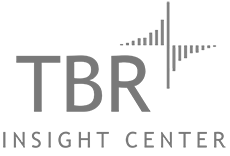Project Everest positions EY to deepen the value it provides to clients
Overview
EY has evolved with the management consulting market, growing a sizable technology consulting practice and increasingly partnering with tech giants and niche software vendors to respond to client demand for advice and assistance infused with technology. The regulatory constraints around EY and the rest of the Big Four, however, have not evolved. As EY’s audit client base has increasingly included technology giants, limiting the firm’s consulting opportunities, internal pressures and external forces have reached a point where EY has had to consider a split. After evaluating client demand, its portfolio and market dynamics, EY announced plans at the beginning of September to move forward with a split — coined Project Everest — of the firm’s consulting and audit businesses. EY’s consulting business will go public and provide tax, business advisory, and technology adoption services while the remaining legacy EY will continue to deliver audit services.
To support the firm’s goal of driving business outcomes, EY will leverage four new areas following the separation. First, independence from audit constraints will allow EY to broaden engagements with new clients around technology, data, and environmental, social and governance (ESG) needs, on which the firm could not previously advise. Second, partnerships with technology vendors that were previously restrained because of audit engagements, such as those with Amazon Web Services (AWS) (Nasdaq: AMZN), Salesforce (NYSE: CRM) and Google (Nasdaq: GOOGL), can be deepened. EY has indicated it audits 25% of the Fortune 500 firms, which means the firm will have ample opportunities to deepen its technology-centric partnerships, such as developing scale through partner-oriented practices including both talent and platform-based services. Third, EY will leverage partnerships to create future-proof solutions on the cloud and deliver on a wider range of client needs. Lastly, to provide higher-value business advisory, EY will grow its tax and legal engagements to support clients’ additional needs that cross business segments and operations.
Talent landscape
As with any major organizational transformation, EY risks losing talent through the shift, but efforts to include share compensation and allow individual countries to decide whether to take part in the split will help the firm retain and recruit staff to support the transition. Additionally, the opportunity to pursue new advisory and technology transformation engagements will serve as a retention point, enabling staff to expand their skills and move into newer areas. Growing technology platforms and solution development skills will remain a key part of EY’s business proposition, but the firm recognizes it will not become a technology hub and looks to strengthen its existing 80,000 technology-oriented staff to facilitate portfolio and client relationships expansion instead of greatly accelerating hiring to reach the scale of competitors such as Accenture (NYSE: ACN), which manages around 700,000 employees.
Partner ecosystem
As EY’s partner ecosystem evolves to include newer partners such as Salesforce, AWS and Google, the firm will look to combine existing advisory and implementation skills with partner cloud solutions and platforms. The partnerships will serve to build skills, facilitate interactions within centers of excellence, and ensure execution and delivery of technology solutions. For example, growth around industry clouds and capabilities associated with platforms will depend on ecosystem partners to develop solutions and address more specific business needs. Narrowing its capabilities by embedding partner expertise to support supply chain and data needs will allow EY to penetrate its client base and increase the contract value of existing relationships.
EY will not likely face pressures in forging partnerships with technology vendors that were previously off limits. While the partners have pre-existing relationships with other IT services vendors such as Deloitte and Accenture, EY’s reputation and project history with clients will validate the firm’s credibility, helping to provide additional opportunities for the partners as well as the firm.
Impacts for other vendors
As EY progresses through the split, the firm will look to expand its partner ecosystem, growing its breadth of offerings around technology and benefiting from increased scale within the cloud space. The lack of regulatory constraints around partnerships will allow EY to offer a broader set of solutions and services that can be integrated more seamlessly into clients’ existing IT environments. The ability to forge these partnerships will create pressure on peers such as Accenture, which can deliver on a similar set of services and has a similar reputation for quality and industry expertise. EY will retain its client relationships, focusing on deepening engagements around expanded capabilities with partners.
EY made the decision to split the firm in response to client demand for additional services beyond traditional audit or tax. Freeing the consulting business from regulatory requirements will help EY retain clients and potentially recapture clients that can now work with EY across a broader set of services. Emphasizing a focus on business value and outcomes for clients will enable EY to preserve its market reputation as the firm executes on the transition while also maintaining relationships with clients.
While EY will likely benefit from the additional opportunity around talent acquisition as well as an enhanced value proposition to compete for additional advisory and transformation engagements, the firm could also face some pressures within the market. Competitors such as Accenture and IBM (NYSE: IBM) that have pre-established technology backgrounds, paired with advisory talent and complemented by partner ecosystems, could pressure EY’s ability to grow outside of its traditional consulting engagements as it markets with a refreshed image. EY’s existing culture, which is relaxed and focused on entrepreneurial activities, will translate into a transactional sales approach at the new company that puts clients at ease.



 Technology Business Research, Inc.
Technology Business Research, Inc.